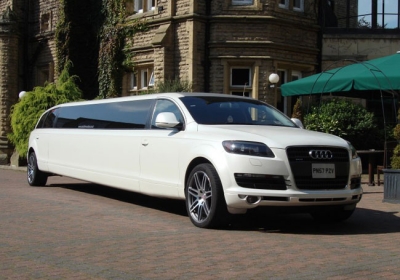The internet has spawned an increasingly common occurence of copyright infringements. Given, rather than create their own unique content, some website owners, or their webmaster, prefer to scour the internet looking for suitable copy. If this is for inspiration, then no-one will ever know, but if you (or someone acting on your behalf) choose to use ‘copy’ that has been found on another website (or elsewhere), then it is likely that you will be infringing the copyright of a third party (the author). In the UK, this is governed by the Copyright, Designs and Patents Act 1988.
Contrary to popular belief, it is not sufficient to vary a few terms because the law states that where the content is substantially similar in design, structure or content to such a degree, that it can be reasonably argued that the work was adapted or copied from the authors original work, then an infringement will have occured. For example, copying complete paragraphs, even if you include your own company name, or a few minor changes would most likely constitute an infringement of copyright. A very common copyright infringement is to copy the ‘terms and conditions of sale’ from another website, rather than employing your own solicitors, this is a clear infringement and is therefore actionable. Similarly, using images, without the owners permission is also an infringement of their copyright.
There are a number of software programmes, such as Copyscape, that scour the internet seeking out sites with similar content to that of their clients’; this information is then passed back to the copyright owners, who can take appropriate action. Where it is believed that an infringement has occurred, you will be contacted in writing and advised of the infringement, in most cases, if you immediately remove the infringing work and provide an undertaking not to repeat the offence, no further action will normally be taken. However, if you ignore this request, then most organisations will instruct specialist solicitors to deal with the matter, which can involve long and costly litigation. If you wish to argue that you are the righful owner, or that it is not an infringement, then it would be advisable to do so through your lawyers, given you will need some objective advice in what is a specialist area of law.
It should also be borne in mind, that the webmaster or, site owner may not be the only parties to an infringement. As a consequence, the owner of the copyright may elect to ‘place on notice’ the website host given they are the defacto publishers. More often than not, when a web host has been advised of potential legal action, they will invoke their own terms, which may result in your website being disabled. In addition, some of the major search engines will also act where there is clear evidence of copyright infringement and this could result in your site being removed from the index.
Cars for Stars Limited, a UK based franchised operation specialising in limousine hire and chauffeur cars, successfully argued a case of copyright infringment, further details of the case are outlined below;
Cars for Stars Limited v Party Limos Limited
Southampton County Court this week gave judgment that Party Limos Limited infringed the copyright owned by Cars for Stars Limited. The Court’s decision in the case of Cars for Stars Limited v Party Limos Limited is a victory for the national limousine hire company.
The claim was issued in December 2004 alleging copyright infringement of website text owned by Cars for Stars. On or around September 2004, Stephen Hughes, Director of Cars for Stars Limited, instructed Lawdit Solicitors Limited to represent Cars For Stars.
The website www.partylimos.org contained identical text to that found on Cars for Stars’ website (www.carsforstars-manchester.co.uk).
The Law provides that Copyright is a property right which vests in the author of original literary, dramatic, artistic or musical works. The website text created and uploaded by Cars for Stars is protected by copyright as a literary work under section 3(1) of the Copyright, Designs and Patents Act 1988 (the ‘Act’).
Cars for Stars provided notice to Party Limos Limited of the copyright infringement and an offer was made to settle this matter swiftly and amicably. A legal letter, referred to as Cease and Desist Letter, was drafted by Lawdit Solicitors and served on the infringing party with digital evidence of the infringement. The letter explained that Cars for Stars was both the author and owner of all literary works contained on its website and therefore only it is entitled to perform the exclusive acts set out under section 16 of the Act. This section gives an exclusive right to the copyright owner to copy, lend and / or make adaptations of the work. This right was infringed and Cars for Stars was forced to issue a claim for copyright infringement and / or seek a court order for the removal of the infringing material.
District Judge Naylor of the Southampton County Court found in favour of Cars for Stars Limited and awarded over £2,000 in damages.
The ruling sends an important message to businesses that operate via the Internet. It is very easy to ‘CUT and PASTE’ words, images and sounds from others websites, for the use on websites. However, the law fortunately recognises that creators of work need protection against blatant infringement.
Therefore, serious consideration must always be given to the use of copy or any images displayed on your website where another party has a rightful claim to copyright. You should also be aware, that it is NOT necessary for any company, organisation or website, to place a copyright notice adjacent to their work to prove ownership, given copyright is an automatic right and arises whenever an individual or company creates a work.




